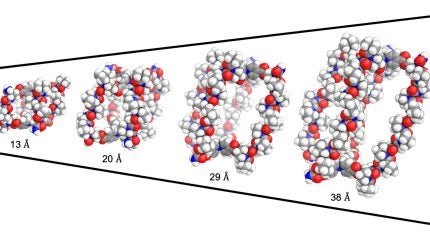
Researchers from King’s College London, UK have used an amino acid found in chicken feathers to deliver chemotherapy to cancer cells.
A preclinical study published in the open access Chem journal, details how researchers have designed a “cage” using biologically compatible peptides, collagen and proline, which are found in chicken feathers. These cages can house drugs of different sizes and transport them in the body with high levels of precision.

Discover B2B Marketing That Performs
Combine business intelligence and editorial excellence to reach engaged professionals across 36 leading media platforms.
Using techniques in peptide synthesis, the researchers showed that such cages could house drugs, and biologically relevant peptides. The study authors say that they could house different-sized drugs, including chemotherapy, antiviral treatments, and other individual proteins.
The principal author of the study Charlie McTernan described the “drug delivery cage” as a “biologically compatible molecular teabag”— wherein different medicines could be filled and delivered in a much more targeted way.
Despite the emergence of alternative and personalised treatments in recent years, chemotherapy remains the standard treatment for many cancers. This is despite aggressive side effects like hair loss, nerve damage, and infertility, which occur because chemotherapy targets both healthy cells and tumours. This nano-sized cage approach delivers the drug directly to tumours, minimising damage to healthy cells.
Delivering targeted medicine straight to a tumour isn’t a new approach, as antibody drug conjugates (ADCs) continue to boom in the pharmaceutical sector. ADCs work by attaching a potent drug to an antibody that specifically targets cancer cells, allowing for direct delivery of the treatment to the tumour whilst sparing healthy cells.

US Tariffs are shifting - will you react or anticipate?
Don’t let policy changes catch you off guard. Stay proactive with real-time data and expert analysis.
By GlobalDataThere have been several high-profile deals in the space recently. Danish drugmaker Genmab acquired ProfoundBio in a $1.8bn deal last month, gaining access to its ADC technology platform and three clinical assets. In February 2024, AbbVie acquired ImmunoGen for $10.1bn, adding ADC Elahere (mirvetuximab soravtansine-gynx) to its portfolio.
ADC production can come with manufacturing challenges due to their complex and multicomponent structures. In comparison, the team at Kings College hopes to sustainably scale up the current production of proline and collagen materials in the lab, as both peptides are widely available.
In the announcement accompanying the research, McTernan added: “In time, we hope that this could mean that we can limit the hair loss, nausea, and other unpleasant side effects of chemotherapy. We might even be able to repair malfunctioning enzymes that have an influence on the development of cancer. The best part is we can do this sustainably and at scale.”




